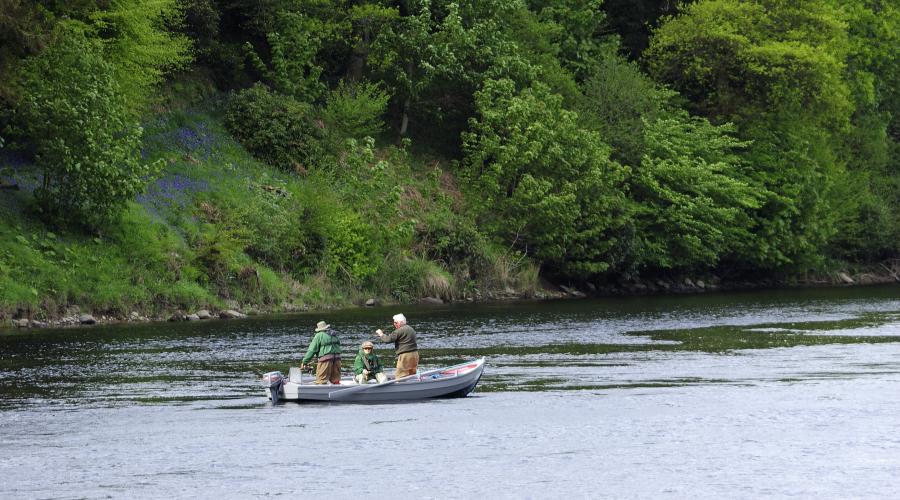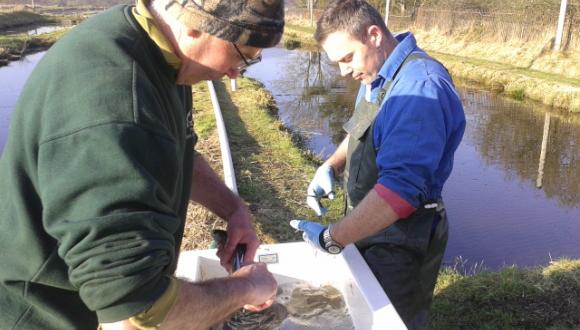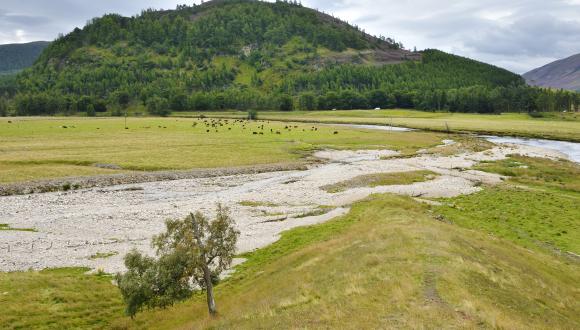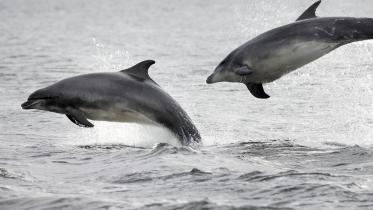
Freshwater fisheries
NatureScot supports sustainable freshwater fisheries, which are managed with nature conservation as a chief concern.
Scotland supports a number of world-renowned freshwater fisheries such as angling for Atlantic salmon. These make a substantial contribution to local economies.
In 2004, game and coarse anglers contributed £113 million to the Scottish economy. Atlantic salmon anglers were the greatest contributors (65%) and a further 30% was contributed by brown and rainbow trout anglers. Coarse anglers contributed 5% of the total revenue, although this figure may rise as this angling sector increases in scale and popularity.
Fisheries for coarse fish species are becoming increasingly important in Scotland. Game anglers also fish for grayling on rivers such as the Annan, Clyde, Tay and Tweed.
Coarse anglers have fished for species like pike and perch in Scotland for many years. But there’s growing interest in fishing for species such as roach and bream, which have a more restricted distribution.
A number of specialist fisheries, for species such as carp, have set up around the south of Scotland and central belt.
Ownership of fishing rights
In Scotland, fishing rights are private and the owners of these rights largely control access to fisheries. It is not the fish themselves that are owned but the right to fish for them.
Salmon fishing rights:
- are heritable titles, passed down the generations
- may be held with, or separate from, any land
- carry with them the lesser right to fish for trout and other freshwater fish
Owners of fishing rights include:
- The Crown Estate
- private individuals
- companies
- local authorities
- angling clubs and associations
Management of freshwater fisheries
Scottish Ministers are responsible for the stewardship of all freshwater fish resources in Scotland.
The Scottish Government – through Marine Scotland Science and Marine Scotland salmon and recreational fisheries policy – plays a vital role in the:
- delivery and implementation of fisheries legislation
- monitoring and analysis of catch statistics
Marine Scotland also carries out research to underpin fisheries policy. Since 2008, Marine Scotland Science also regulates the movement of all species of fish other than salmon (meaning both Atlantic salmon and sea trout) to inland waters. We are consulted if an application to introduce fish involves waters in, or connected to, sites designated for nature conservation.
Learn more about freshwater fish introductions on the Marine Scotland website.
Salmon fisheries regulation
District Salmon Fishery Boards (DSFBs) – including the River Tweed Commission – have a legal remit to regulate and manage salmon fisheries in Scotland. The River Tweed Commission is the only such board responsible for managing all freshwater fish species – not just salmon.
Boards raise funds through a levy system for the:
- policing or protection of the salmon resource
- management of salmon rivers – although much of the responsibility for this lies with the owners
Scottish Ministers can also regulate salmon fisheries via legislative controls. For example, it’s illegal to introduce salmon to any water within a DSFB area without written permission from the relevant Board.
Conservation issues
Full-time biologists are employed by:
- some larger DSFBs
- fishery trusts – enabling smaller DSFBs and other fishery owners to employ biologists to help them manage fisheries in their area
The Scottish Fisheries Co-ordination Centre holds fishery trust data and develops standard fish sampling and habitat assessment methodologies.
Other bodies that manage fisheries
Game anglers are represented by the:
The Scottish Federation for Coarse Angling represents coarse anglers.
These organisations represent anglers at the national level, but many of their constituent angling clubs manage their own leased or owned fisheries.
Private fishery owners and some public bodies or publicly owned companies (such as Forestry Commission Scotland, Scottish Water or The Crown Estate) also manage freshwaters for angling purposes, or lease assets to angling clubs.
Since 2014, a process of wild fisheries reform has been under way in Scotland. This has resulted in some changes such as the introduction of conservation regulations. Working groups have been established to tackle key issues. NatureScot contributes to this work, particularly by sitting on a number of these groups.
Learn more about wild fisheries reform on the Scottish Government website.





